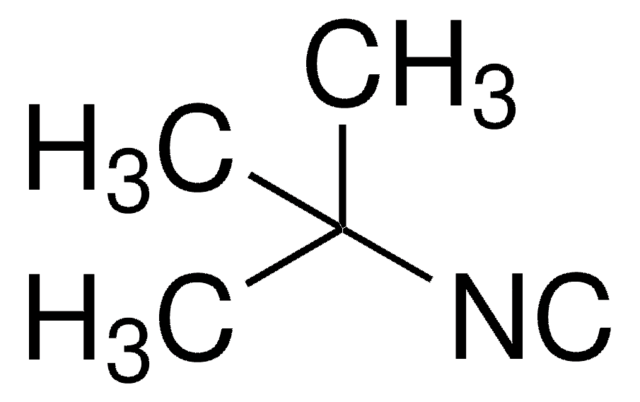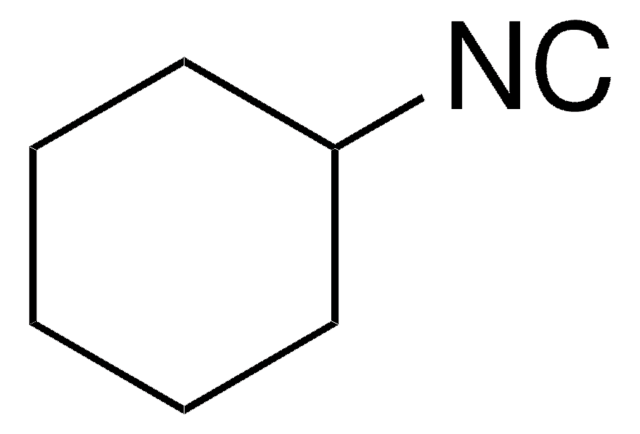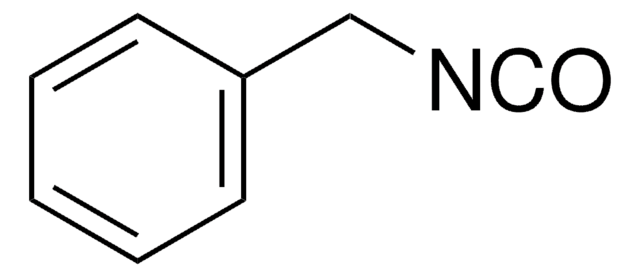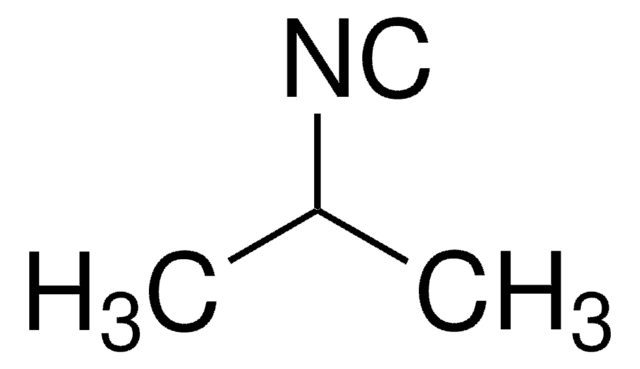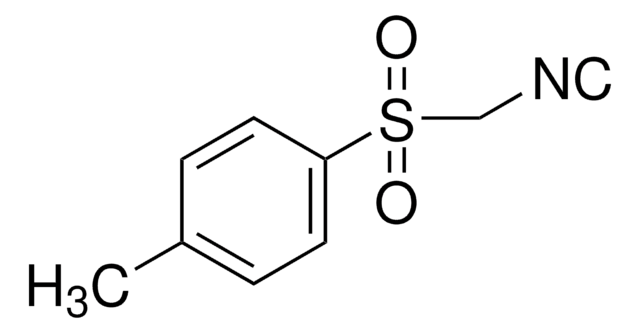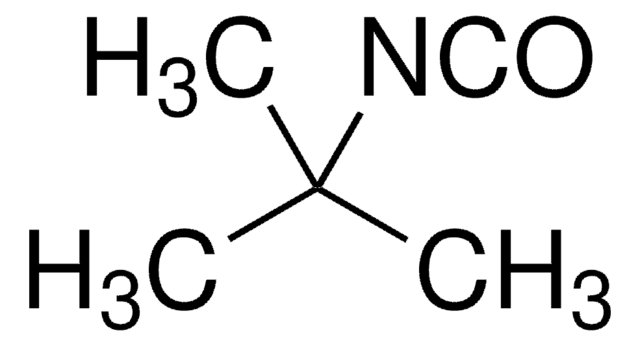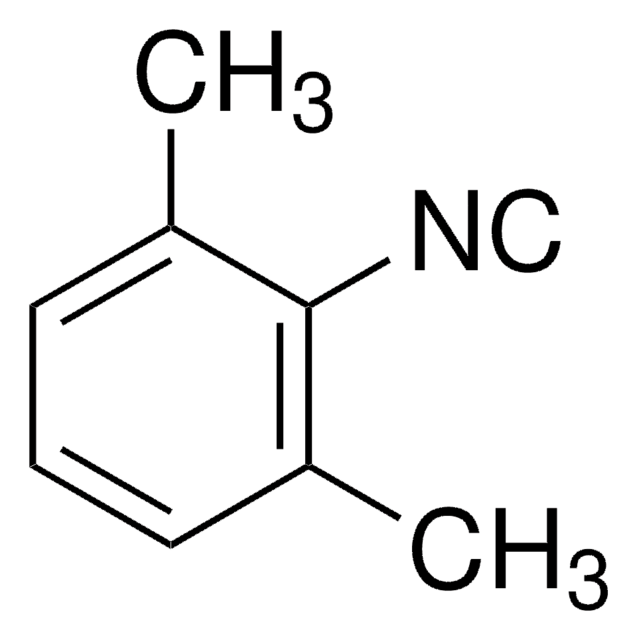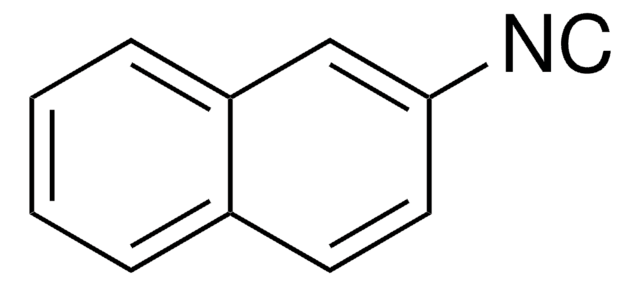133299
Benzyl isocyanide
98%
Synonyme(s) :
(Isocyanomethyl)benzene, Benzyl isonitrile
About This Item
Produits recommandés
Niveau de qualité
Pureté
98%
Indice de réfraction
n20/D 1.521 (lit.)
Point d'ébullition
105-106 °C/75 mmHg (lit.)
Densité
0.962 g/mL at 25 °C (lit.)
Groupe fonctionnel
amine
isonitrile
phenyl
Température de stockage
−20°C
Chaîne SMILES
[C-]#[N+]Cc1ccccc1
InChI
1S/C8H7N/c1-9-7-8-5-3-2-4-6-8/h2-6H,7H2
Clé InChI
RIWNFZUWWRVGEU-UHFFFAOYSA-N
Catégories apparentées
Description générale
Application
Autres remarques
Mention d'avertissement
Warning
Mentions de danger
Conseils de prudence
Classification des risques
Acute Tox. 4 Oral
Code de la classe de stockage
10 - Combustible liquids
Classe de danger pour l'eau (WGK)
WGK 3
Point d'éclair (°F)
174.2 °F - closed cup
Point d'éclair (°C)
79 °C - closed cup
Équipement de protection individuelle
Eyeshields, Faceshields, Gloves, type ABEK (EN14387) respirator filter
Faites votre choix parmi les versions les plus récentes :
Déjà en possession de ce produit ?
Retrouvez la documentation relative aux produits que vous avez récemment achetés dans la Bibliothèque de documents.
Les clients ont également consulté
Notre équipe de scientifiques dispose d'une expérience dans tous les secteurs de la recherche, notamment en sciences de la vie, science des matériaux, synthèse chimique, chromatographie, analyse et dans de nombreux autres domaines..
Contacter notre Service technique